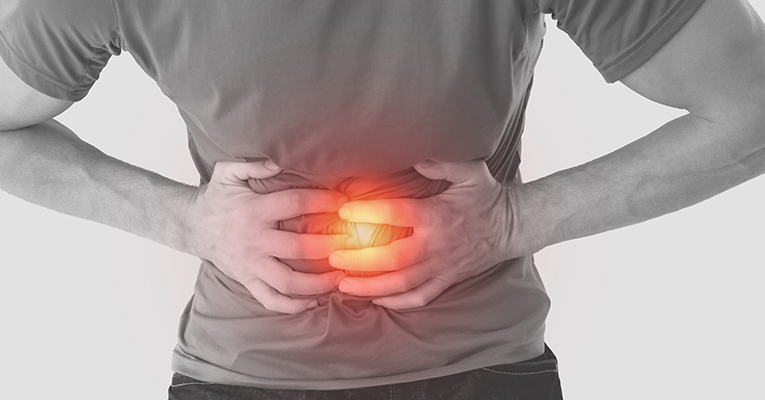
A swollen abdomen when grows outwards abnormally, this refers to as abdominal distention or a distended abdomen. This change may be seen, measured, and even felt. A distended belly can be caused by gas bloating or by an accumulation of fluid, tissue, or gastrointestinal contents. It can be either acute or chronic.
A bloated abdomen is noticeably larger than normal. It is frequently accompanied with a sensation of being bloated due to trapped gas or stomach secretions. Abdominal distension, on the other hand, is not usually caused by digestive processes. A distended abdomen is diagnosed due to few factors: flatus (gas), fetus’s (pregnancy), faeces or fat.
A distended abdomen may be painful or merely a sign which you and your medical provider notice visually. It might be acute — a rapid, uncommon event — or chronic — something which occurs and settles itself in a predictable manner on a regular basis. Chronic abdominal distension followed by an unpleasant bloated sensation is frequently associated with a digestive condition.
What are causes of abdominal distention in adults and what are its indication?
A swollen or a distended abdomen can be either biological or functional. An illness, for example, can be described by physical evidence. Functional issues are visible yet unexplained.

Digestion difficulties that cause gas and/or digestive contents to collect are common functional causes of a distended abdomen. Possible causes include:
If you consult a doctor for your distended abdomen, your doctor will investigate the reason. They will start by inquiring about your symptoms for distended abdomen and inspecting your abdomen to check where it is distended. The position of the outward curvature, whether uniform over your abdominal wall or more apparent in one area, assists them in determining which organs are damaged and narrowing the list of possible reasons. To assess the existence of fluids, gases, or solids, they could also feel the region using their hands or strike it and hear the sound it creates.
The abdominal internal organs are divided into two types: solid and hollow. These can swell and cause distended abdomen as a result of inflammation or overgrowth such as a tumor, abscess, or cyst. Your healthcare practitioner may be able to detect whether they are enlarged by feeling them, or they may need to see an imaging of the internal organs. A big growth may be felt through the skin. Your healthcare professional will use imaging tests to establish your problem, then follow up with multiple testing and treatment as needed.
Fluid buildup in the membrane of the abdominal cavity, known as the peritoneum, is another reason of abdominal distension. These tissues could become inflamed due to infection, or they can fill with fluid due to a disease known as ascites. Ascites is a condition that arises when pressure on the blood arteries in the liver which is called as portal hypertension that pulls fluid into the abdominal cavity. A physical exam may typically reveal fluid in the peritoneum, but an ultrasound examination is more sensitive.
If the reason of your distended abdomen is organic, the therapy will be tailored to that cause. It might signify dealing with a sickness, infection, growth, impediment, or harm. When the underlying cause is addressed, an acute case will resolve. A chronic condition may benefit from the addition of diuretics (for fluid retention), laxatives (for constipation), or active carbon capsules (for gas).
If the source of your functional abdominal distension is unknown, managing it may need some trial and error. A hydrogen breath test may be recommended by your healthcare physician to assist diagnose the reason of excessive intestinal gas. They may also advise you to try dietary modifications, probiotics, or enzymes to help with digestion.
Knowing the reason makes prevention easier. If you detect stomach distension after eating, you could be able to adjust your food patterns to avoid it. As an example:
Seek medical attention if you have the following symptoms of abdominal distension:
See Also: Gastrointestinal and Stomach Issues After Covid-19: What to Know and Expect.
A distended abdomen is frequently a transitory digestive problem, although it can be painful and possibly suggest a dangerous illness. It is not necessary to suffer in quiet. If you are having a digestive issue, your doctor can help you figure out what’s causing it and how to treat it at home. If you have a serious ailment that’s not improving, you must seek medical attention. A symptom might be a gift in disguise, leading you to cure an unknown ailment or merely uncover a food intolerance.